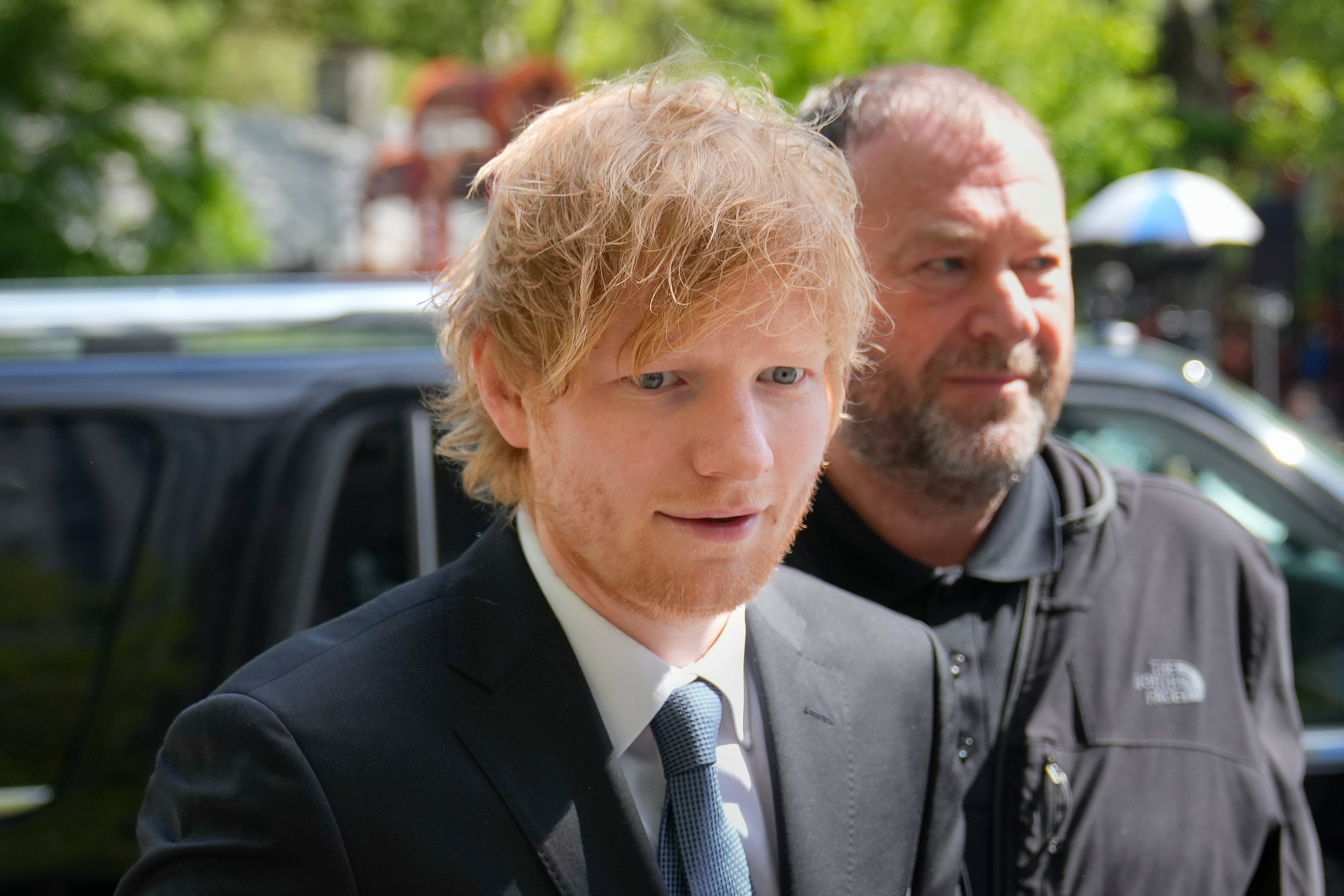Ed Sheeran wins Marvin Gaye ‘Thinking Out Loud’ plagiarism case: ‘I’m not going to have to give up my day job’
British singer was accused of ripping off Gaye’s 1973 classic, ‘Let’s Get It On’
A New York jury ruled Wednesday (4 May) that Ed Sheeran’s hit song “Thinking Out Loud” did not copy Marvin Gaye’s soul classic “Let’s Get It On.”
The British singer-songwriter reportedly hugged his attorneys when the verdict was read after three hours of jury deliberations.
Sheeran had been sued by the heirs of Ed Townsend, the songwriter who composed the 1973 anthem with Gaye. They have alleged that Sheeran’s 2014 song “Thinking Out Loud” copied harmonic progressions, melodic and rhythmic elements from “Let’s Get It On” without permission.
The lawsuit was initially filed in 2017, however, it took six years to finally reach a Manhattan federal court.
Sheeran vehemently denied plagiarising “Let’s Get It On”. His lawyers argued that the song uses common constructions found in many pop tracks.
Sheeran later addressed the press after the verdict, saying: “It looks like I’m not going to have to give up my day job after all.” Days earlier, Sheeran had vowed to quit music if the jury decided in the plaintiff’s favour.
“Let’s Get It On” has been heard in countless films and commercials and garnered hundreds of millions of streams, spins and radio plays since it came out. “Thinking Out Loud” won a Grammy for song of the year in 2016.
Townsend, who also wrote the 1958 R&B doo-wop hit “For Your Love,” was a singer, songwriter and lawyer. He died in 2003.

In April last year, Sheeran won another copyright lawsuit after he was accused of plagiarising his song “Shape of You” from Sami Chokri’s 2015 track “Oh Why”.
“There was a lot of talk throughout this case about cost. But there is more than just a financial cost,” Sheeran said in a joint statement released with McDaid and McCutcheon, following the ruling.
“There is a cost on creativity. When we are tangled up in lawsuits, we are not making music or playing shows.”
The statement continued: “There is a cost on our mental health. The stress this causes on all sides is immense. It affects so many aspects of our everyday lives and the lives of our families and friends. We are not corporations. We are not entities. We are human beings. We are songwriters. We do not want to diminish the hurt and pain anyone has suffered through this, and at the same time, we feel it is important to acknowledge that we too have had our own hurts and life struggles throughout the course of this process.”
Join our commenting forum
Join thought-provoking conversations, follow other Independent readers and see their replies
Comments


Bookmark popover
Removed from bookmarks